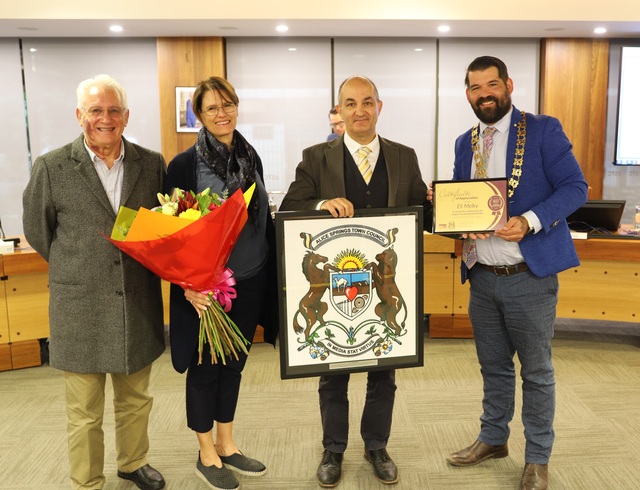The success of a two year old agreement – which saw the development of a much needed industrial estate – has paved the way for further negotiations between the Flinders Shire Council and the Yirandali people of north western Queensland. In April 2003, the groups finalised an indigenous land use agreement (ILUA) allowing the transfer of 35 hectares of crown land into freehold for the creation of the Hughenden Industrial Estate and the transfer of two hectares of freehold land to the Yirandali people.
A broader agreement was also reached which recognised the Yirandali people as the traditional owners of the area and established a cultural heritage management plan and a communications protocol. Now, more than two years later, the groups are preparing to reach further agreements about native title over Hughenden and nearby towns, Torrens Creek, Prairie, Stamford and some adjacent reserves.
Flinders Shire Council Chief Executive Officer, Stephen McCartney, said the latest talks were spurred on by the constructive relationships the two groups had maintained and the success of the initial agreement.
Along with the practical end of the land transfers and subsequent development of the industrial estate, a Yirandali Flinders Forum now meets twice a year for discussions about key issues.
“Prior to negotiating the agreement we didn’t know who the traditional owners were,” Stephen McCartney said. “We were able to have full and frank discussions, move forward and overcome some native title and land issues. Now we’re doing teleconferences and face to face meetings with the Yirandali people and we know who we’re dealing with.”
Russell Bellear, Chief Executive Officer of the Central Queensland Land Council representing the Yirandali people, said the ILUA had brought the Indigenous people back to their country.
“The ILUA was done in good faith and both parties got a lot out of it,” he said. “There wasn’t much of a relationship before – this process brought the groups together. I would encourage other councils to engage with traditional owners to get positive outcomes in the future.”
Tribunal Member John Sosso, who helped facilitate the agreement, said it was a good example of what could be achieved when both parties approached a negotiation with an attitude of goodwill.
“Local authorities are seeing the value of engaging with native title groups to negotiate outcomes that are mutually advantageous,” he said.







